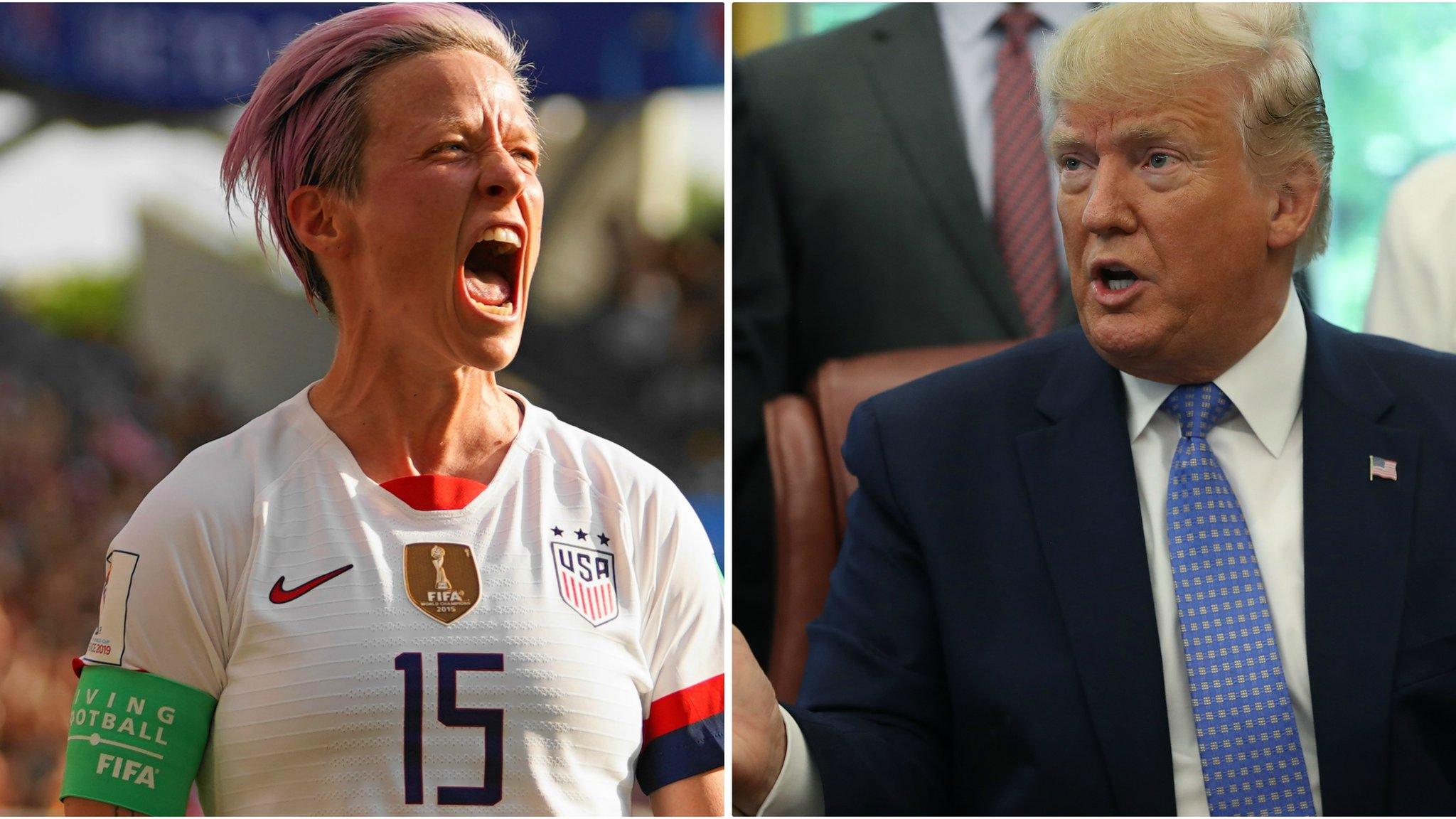Women's World Cup: Record-breaking numbers
- Published
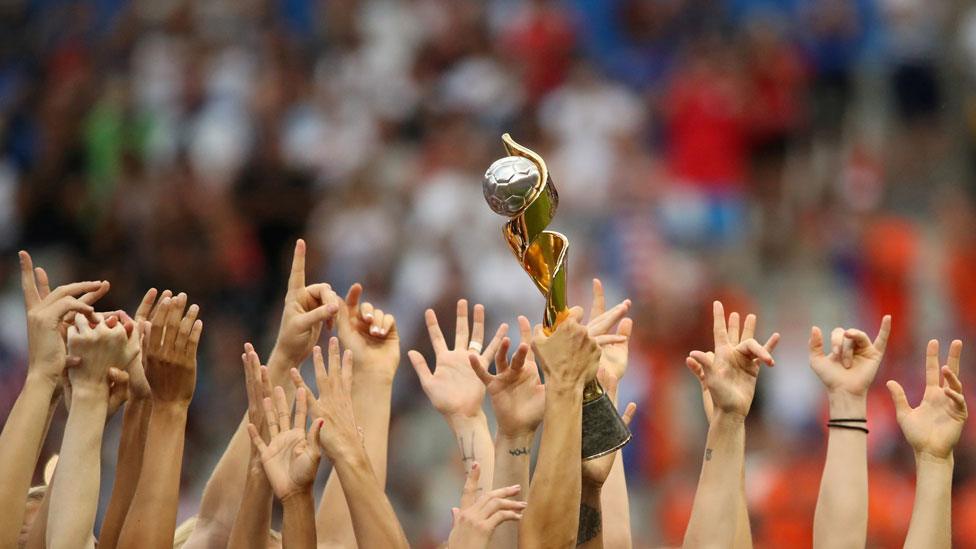
The 2019 Women's World Cup has surpassed expectations, smashing records and proving we are entering a new era in the women's game.
The tournament in France has drawn a huge wave of interest and made history on and off the pitch, reflecting an increased international commitment and investment in the sport.
Here are some of the big numbers that made this year's contest such a landmark event.
1. Millions of people watched the tournament
With more than 200 broadcasters in attendance and many giving games prime-time slots on network television, Fifa has estimated that this year's World Cup will have drawn one billion viewers for the first time.
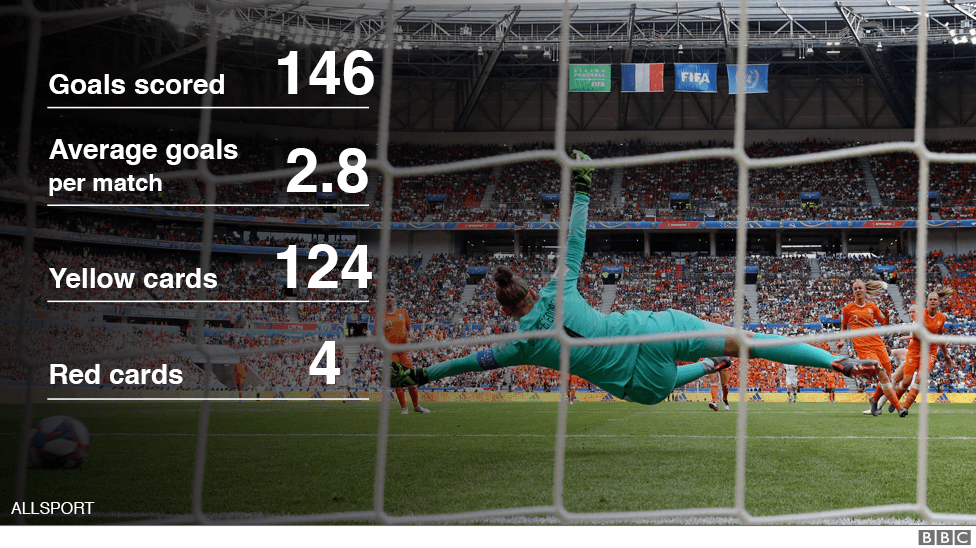
TV records have been broken across the globe, including in France, the United States, Germany and China.
Almost 59 million people watched Brazil's last-16 game against hosts France, making it the most watched women's football match of all time.
The final between the US and the Netherlands drew 5.48 million on Dutch TV. Eighty eight percent of Dutch TV viewers watched the match, the highest TV audience in the country since the 2014 men's World Cup semi-final.
In the UK, England's semi-final defeat by the United States attracted the highest peak UK television audience of the year so far with 11.7m - setting a new record for women's football in the UK.
That was 50.8% of the available audience and smashed the previous best for a women's game of 7.6m for England's quarter-final win over Norway.
The quarter-final between the USA and France drew a record audience of 6.1m, external in the US, according to Fifa.
2. A number of records have been broken on the pitch
The US has dominated the tournament in terms of records smashed.


The team has now won a record four titles and their joint captain Alex Morgan equalled the record for most goals scored by an individual in a Women's World Cup match, with five in their crushing 13-0 defeat of Thailand on 11 June.
That result also made history, with the US breaking the record for the highest margin of victory.
And Carli Lloyd, playing for the US, broke records by scoring in six consecutive games across the 2015 and 2019 World Cups.
Brazil's Marta also became the record scorer in World Cup finals, with 17 goals in five tournaments.
A second-half penalty against Italy saw her become the all-time leading scorer at men's or women's World Cups, surpassing retired Germany striker Miroslav Klose.
3. Prize money has increased, but still isn't equal to men's
Fifa, the world governing body, doubled the total prize money for the 2019 Women's World Cup from $15m to $30m (£24m), but it is still a fraction of the $400m received by the players in the men's tournament last year.
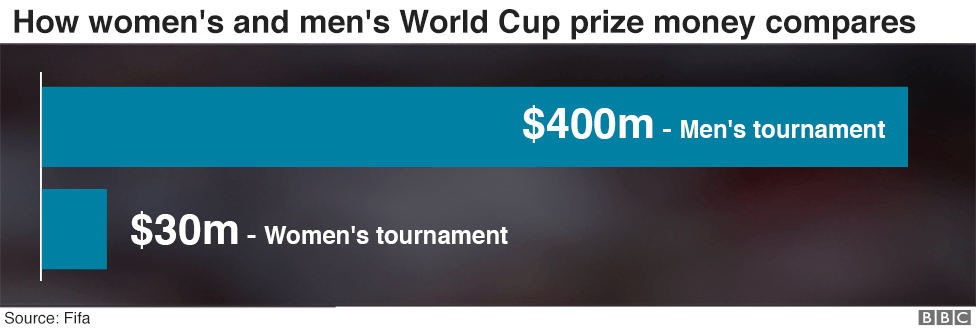
The men's champions, France, took home $38m - that's more than all 24 women's teams competed for in 2019.
Global footballers' union FIFPro said the increase in prize money was not enough to redress the inequality between men's and women's football and that the sport remained "even further from the goal of equality for all World Cup players".
Fifa has since announced it wants to increase the size of the Women's World Cup to 32 teams, with prize money for the next tournament rising to $60m (£48m).
Yet it will still be less than the men's prize and Fifa president Gianni Infantino was met on Sunday with deafening chants from fans calling for equal pay.
And with 13.36m women and girls now playing organised football globally, according to Fifa's own figures, those shouts are likely to get louder.
4. Sponsorship cash has risen
With growing interest in women's football, brands have been increasingly willing to show their backing for the game.
Some are describing it as a "culturally relevant" moment, external that helps companies tap into new audiences.
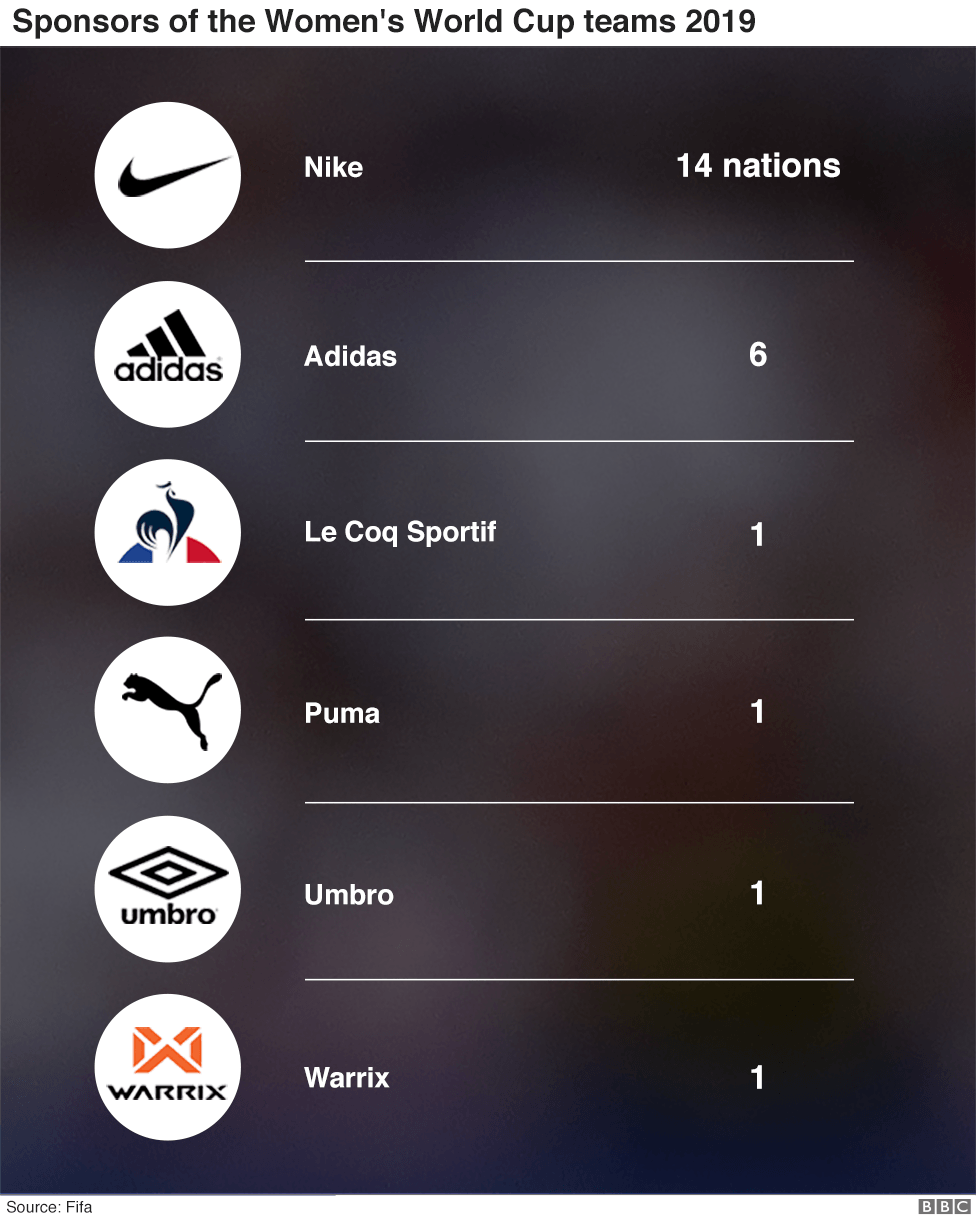

Visa, one of six global Fifa sponsors, pledged to spend the same on marketing the Women's World Cup as it did the men's in Russia.
And England team sponsors Lucozade Sport and Head & Shoulders also promised equal prominence in advertising for the Lionesses.
Adidas has also said its sponsored players on the winning team "would receive the same performance bonus, external as their male counterparts".
However, it isn't clear how much Fifa sponsorship money the women's game generates, as the top sponsors are signed up for both the men's and women's World Cups.
5. There's been a lot of social media reaction
Quite apart from the momentum the sport is already gaining, many of this year's games have been highly entertaining and have sparked widespread debate on social media.
On-pitch drama, including late goals, the use of the video assistant referee system and controversial celebrations, alongside off-pitch debate, such as the spat between US co-captain Megan Rapinoe and President Donald Trump, have also served to boost interest.
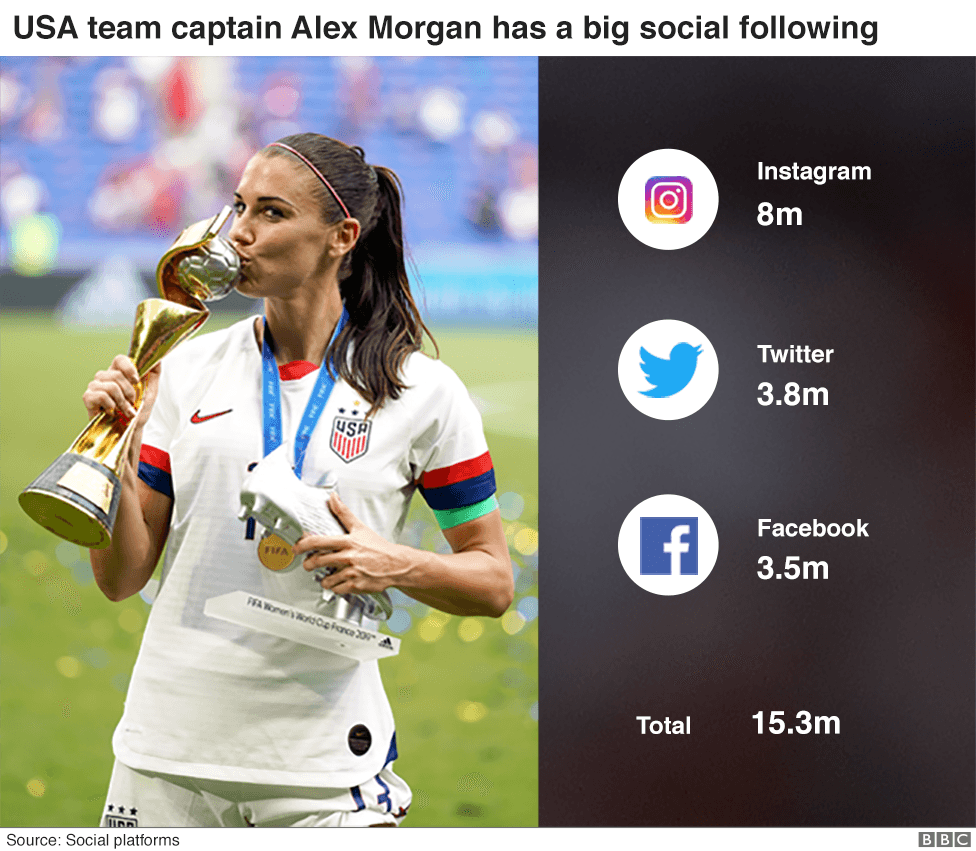

And some of the tournament's big stars have massive social followings.
US forward Alex Morgan has a combined 15.3m followers on social media, including 8m on Instagram, 3.8m on Twitter and 3.5m on Facebook.
The official Fifa Women's World Cup social accounts had seen 433 million views by the end of June, while they had gained another two million followers., external
The official Twitter and Facebook accounts have almost 2m followers and there have been more than 2m conversations using the Women's World Cup hashtag., external
6. However, ticket sales have been disappointing for some games
Fifa said prior to the tournament that 950,000 tickets had been sold, and president Gianni Infantino claimed: "We already sold out 20 matches or so."
But the world governing body later said that figure was now 24, and it had reached an "important milestone" as sales passed one million.
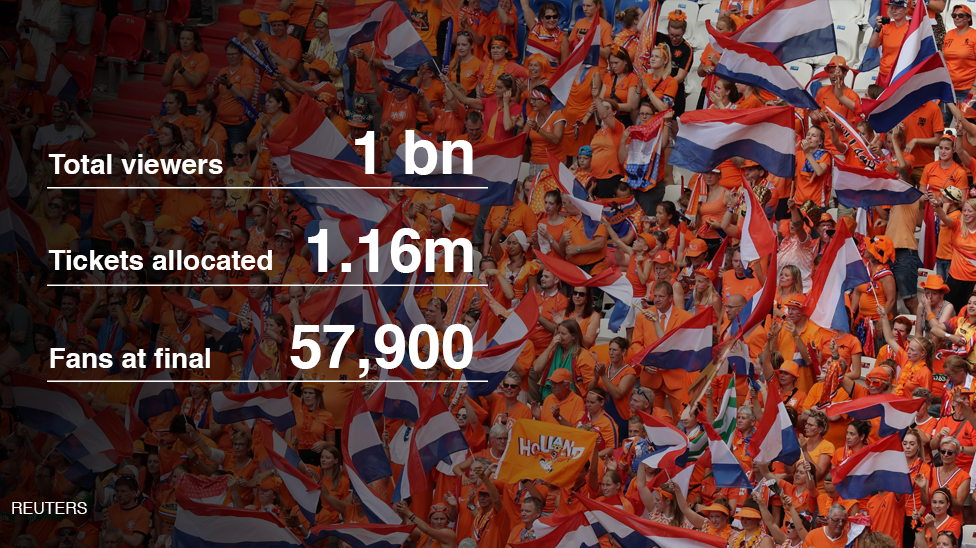
With ticket sales of at least 1.16m, attendance was only just short of the record level of 1.35m set at the 2015 World Cup in Canada.
Fifa said all matches played by the French hosts sold out.
There was, however, confusion after England's opener against Scotland was billed as close to sold out, but only 13,188 fans attended - that was only 37% full.
And a day before the start of the quarter finals, Fifa said tickets for two matches were still available.
However, the final on Sunday did see a full house, with 57,900 fans at the Stade de Leon.
And with her winners' medal round her neck, US joint captain Rapinoe demanded the debate about the merits of women's football be moved on.
"We put on the most incredible show that you could ever ask for," she said.
"We can't do anything more to impress more, to be better ambassadors, to take on more, to play better... It's time to move that conversation forward to the next step."
BBC Sport has launched #ChangeTheGame this summer to showcase female athletes in a way they never have been before. Through more live women's sport available to watch across the BBC this summer, complemented by our journalism, we are aiming to turn up the volume on women's sport and alter perceptions. Find out more here.
- Attribution
- Published5 July 2019
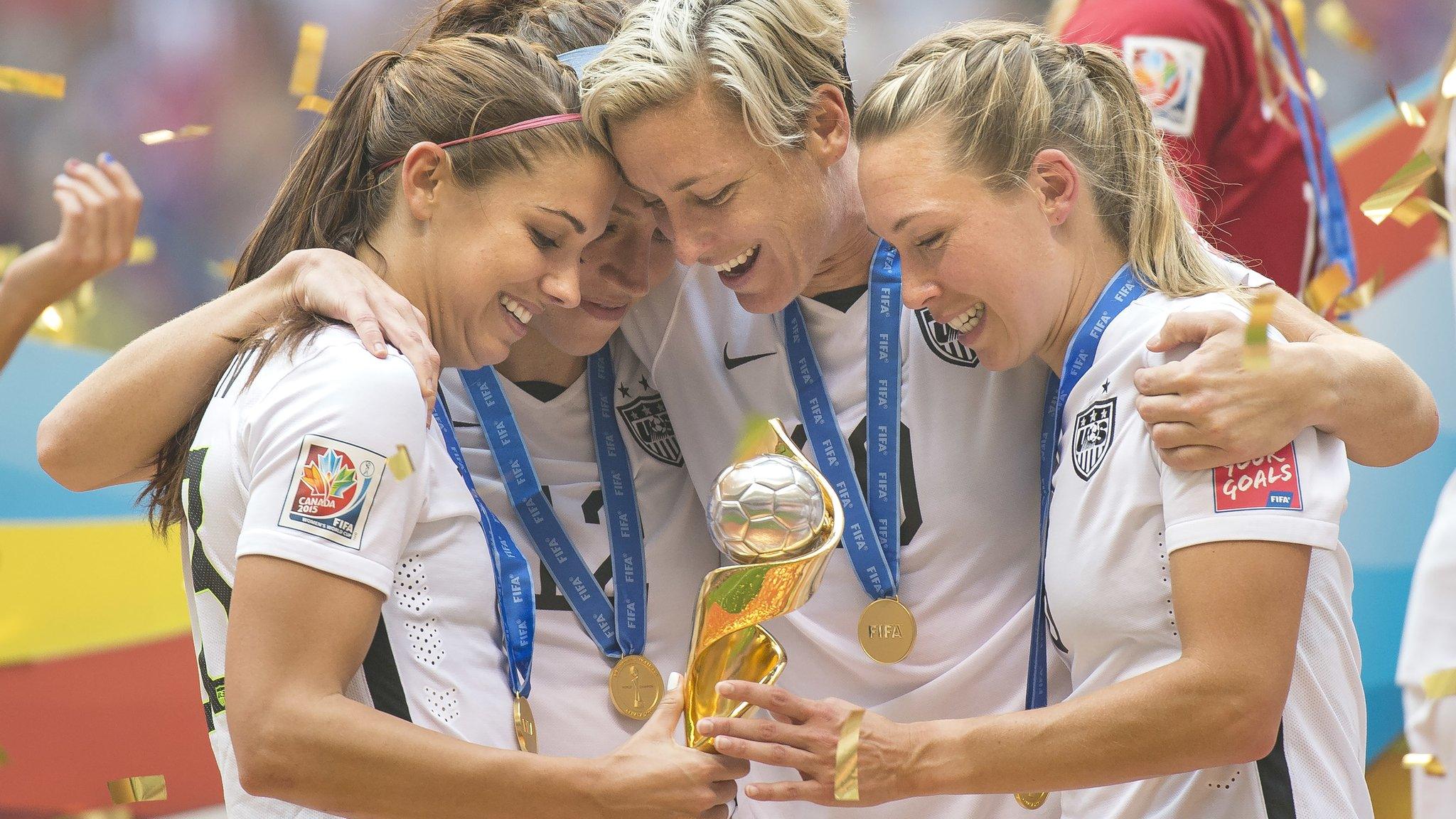
- Attribution
- Published26 June 2019
